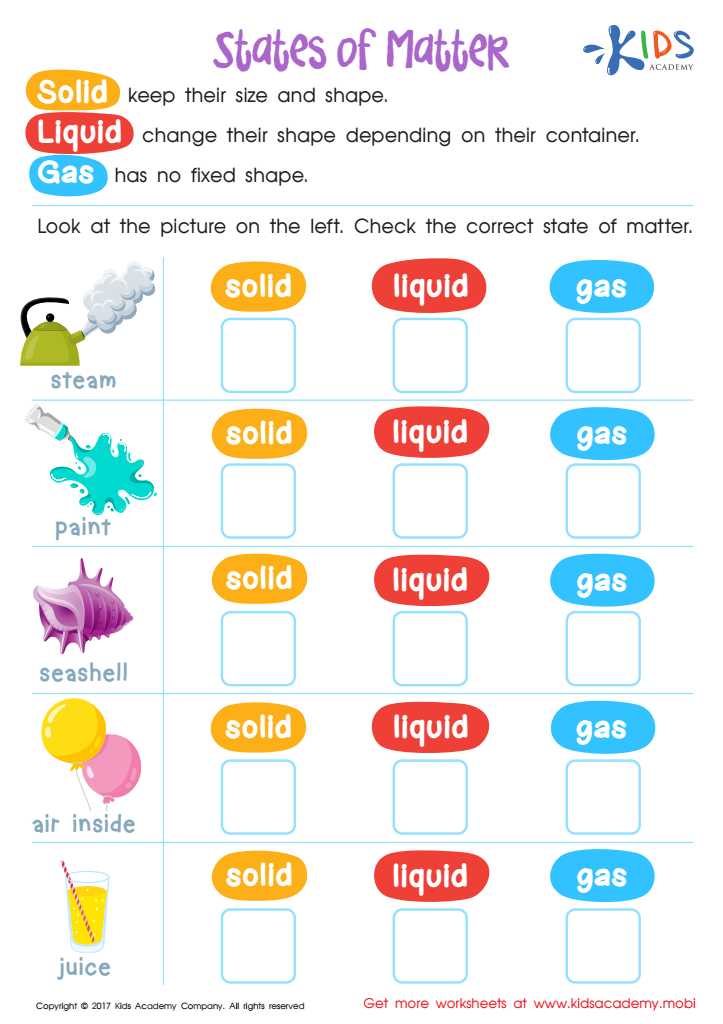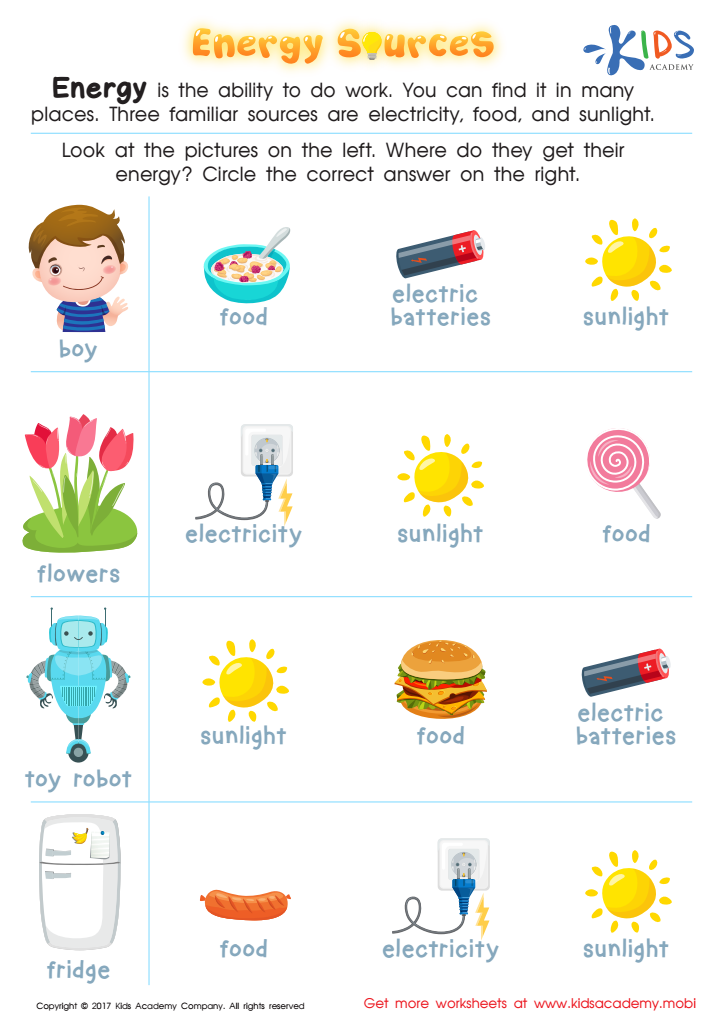Normal Physical Science Worksheets for Ages 3-7
3 filtered results
Difficulty Level
Grade
Age
-
From - To
Subject
Activity
Standards
Favorites
With answer key
Interactive


Physical Science: States of Matter Worksheet
Kids must identify a substance as solid, liquid, or gas to master physical science. Help them understand elements in the world with this engaging worksheet!
Physical Science: States of Matter Worksheet
Worksheet


Sink or Float Printable
They'll learn why some things stay on the surface and others sink to the bottom. (80 words)
Sink or Float Printable
Worksheet


Energy Sources Printable
Introduce energy sources with this worksheet PDF — explore the sun, batteries, and more! Get your mini scientist excited about energy and power up their learning.
Energy Sources Printable
Worksheet

 Assign to the classroom
Assign to the classroom












